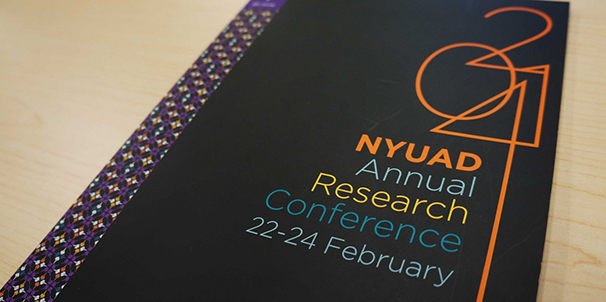
Editor’s note: This article was originally published in Issue 29 of The Gazelle, the student publication at NYU Abu Dhabi. It has been reprinted with permission as a part of an ongoing collaboration between The Gazelle and WSN to connect our two campuses.
NYU Abu Dhabi’s inaugural research conference began on Saturday, Feb. 22 and will continue until Monday, Feb. 24. It aims to showcase the diversity and breadth of faculty and student research. Projects range from ‘attack of the gamma-ray space spiders’ to combinatory language processing in English versus Arabic. The presentations are open to anyone; according to David McGlennon, Vice Provost of Research Administration and University Partnerships, they are an excellent way of piquing the interest of the wider community.
“We wanted to … help showcase the research and scholarship across the university, and provide a forum so that the community can see what’s happening [here],” McGlennon said.
“It gives everyone a sense of the broad range of activities … that otherwise, within their normal work, they don’t necessarily see,” he added.
The research presentations are not limited to faculty; students are also invited to participate. In this way, the conference encourages a culture of cross-pollination in which students and faculty from diverse backgrounds and with opposing views can create an entirely new breed of research.
Yet the conference was designed to showcase student research outside of the senior capstone projects.
“It’s not focused around [capstones] … the timing maybe is not perfect … and we’ve been trying not to cross over the divisions and avoid any conflict with [possible capstone showcases],” said McGlennon.
Hannah Brückner, Associate Dean of Social Sciences at NYUAD, was eagerly anticipating learning more about the projects of her colleagues outside of the Social Sciences department. This is an important facet of the conference.
In future years, McGlennon hopes that the conference can be extended in order to include a wider demographic. He said that this year the conference is limited almost solely by space restrictions and that it would have been productive to open it up to a larger audience.
“Next year though, once we’re at Saadiyat, we’ll most definitely open it up to the wider community … We can see the value in doing this annually, making it open to the public, inviting presentations from other universities … opening up to a wider audience,” he said.
A version of this article appeared in the Monday, Feb. 24 print edition. Tessa Ayson is features editor at The Gazelle. Email her at [email protected].






















































































































































